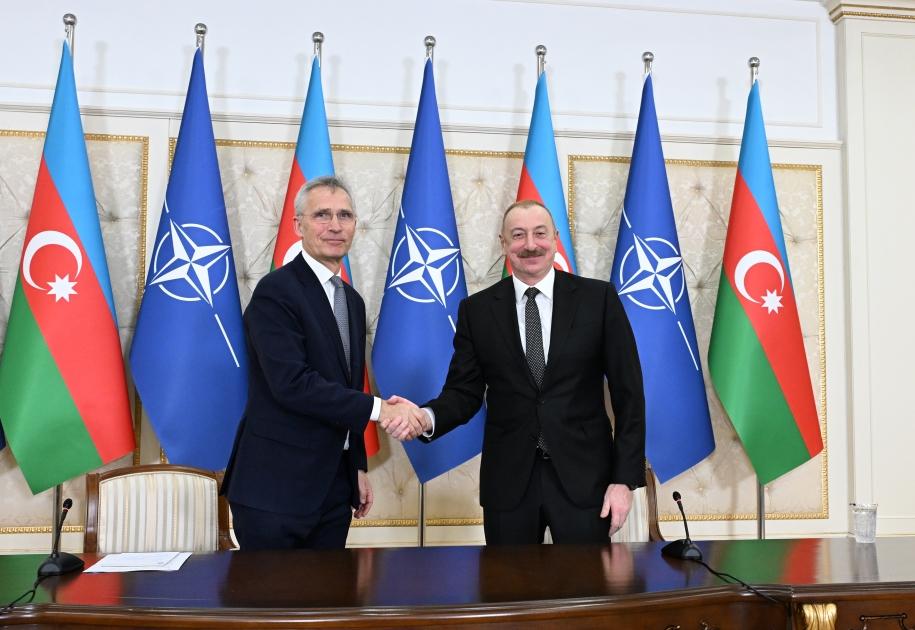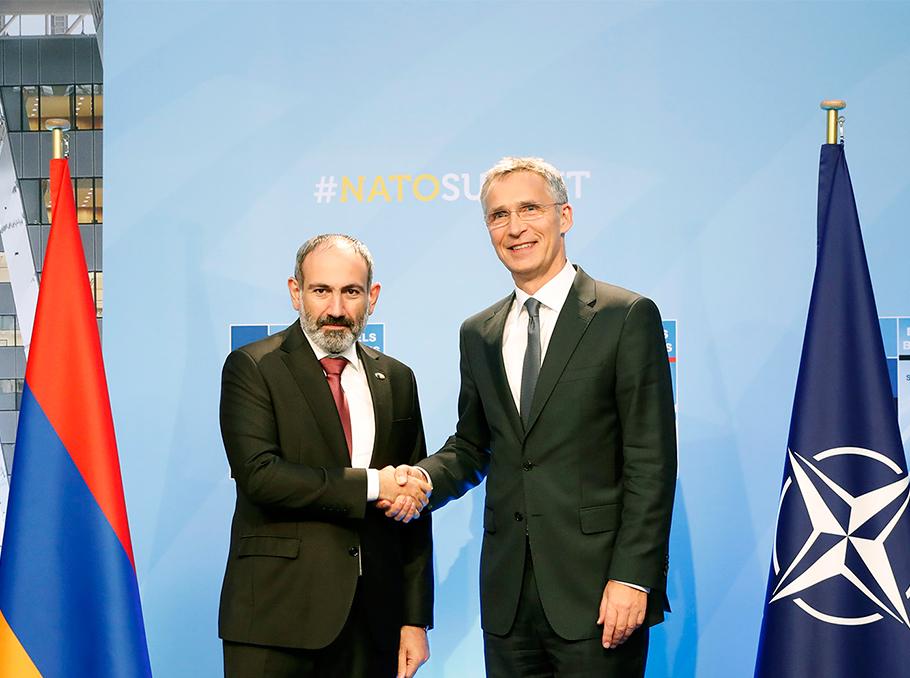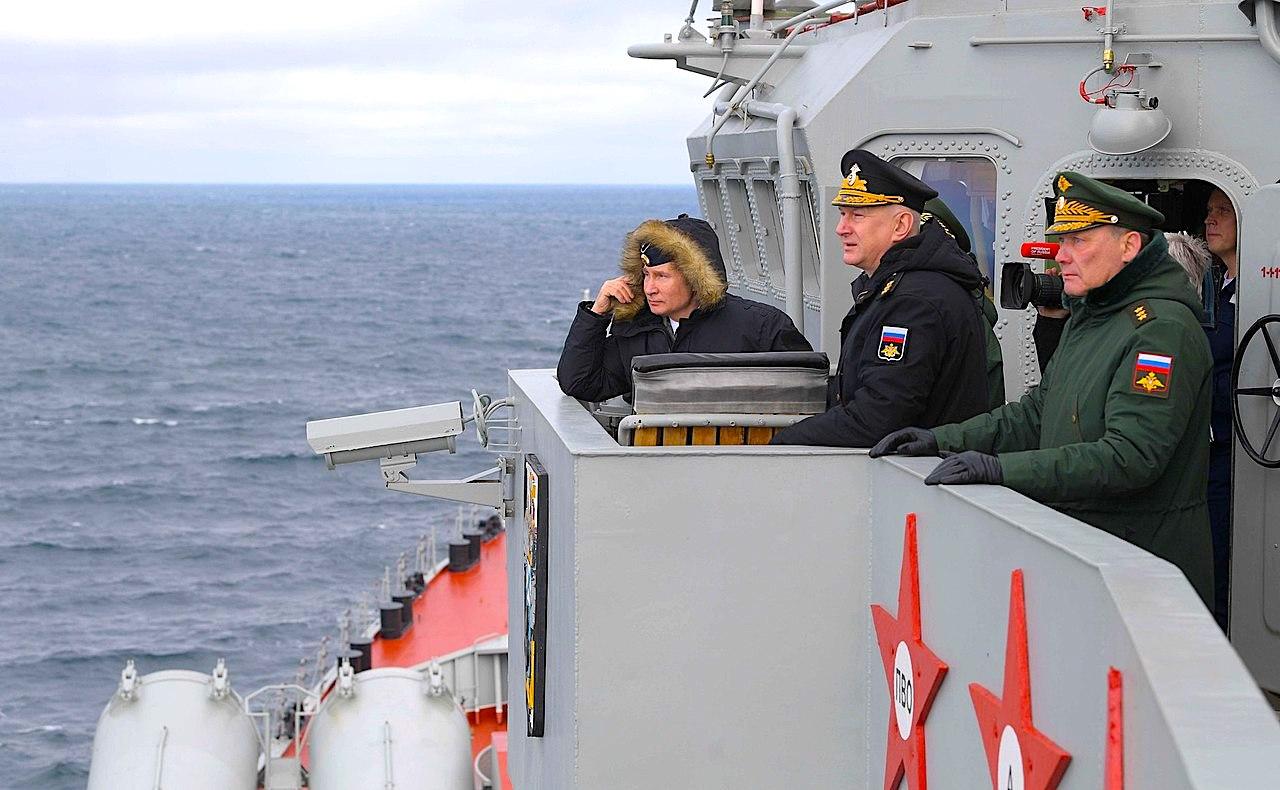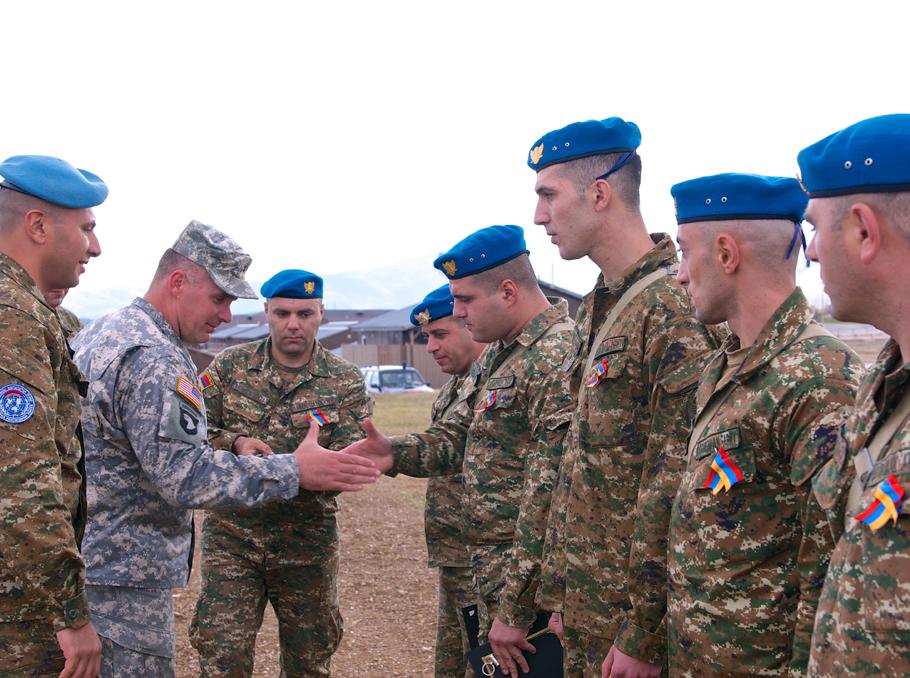NATO's strategic dance in the South Caucasus Balancing act for Baku & Moscow
NATO Secretary-General Jens Stoltenberg's unfolding tour of the South Caucasus, spanning Azerbaijan, Georgia, and Armenia, represents a strategic engagement in a region of growing geopolitical significance.
Strategic tightrope
The sequencing of the tour, beginning with Azerbaijan, underscores NATO's recognition of the strategic importance of each South Caucasus state and its desire to deepen ties with the region. As Stoltenberg engages in high-level discussions with Azerbaijani leaders, the visit underscores NATO's interest in fostering closer ties with Baku, acknowledging Azerbaijan's pivotal role in regional security dynamics.
Azerbaijan, with its formidable military capabilities and demonstrated effectiveness during the Second Karabakh War of 2020, holds a pivotal position in the security landscape of the South Caucasus and the wider region. Its successful restoration of territorial integrity during the conflict has elevated its status as a key player in regional security dynamics with the most powerful army. Consequently, high-level discussions between Stoltenberg and Azerbaijani leadership highlight NATO's keen interest in fostering closer cooperation with Baku.

The visit also underscores NATO's recognition of Azerbaijan's significant investments in defense and security programs, reflecting its commitment to enhancing regional stability and security. Azerbaijan's active participation in NATO's Partnership for Peace program, as well as its past contributions to NATO missions, notably in Afghanistan, underscores the evolving nature of its relationship with the alliance.
However, Azerbaijan's alignment with NATO also carries potential risks and complexities. While Azerbaijan seeks to deepen its cooperation with NATO, it must navigate the delicate balance between regional security imperatives and the risk of entanglement in broader European conflicts. This includes considerations such as limitations on military-technical cooperation with other nations and the potential for involvement in conflicts between NATO and Russia.
Furthermore, Armenia's perspective on NATO as a tool for pressuring Russia and Azerbaijan's historical ties with Moscow add additional layers of complexity to the geopolitical landscape of the region. As such, Azerbaijan's engagement with NATO requires a nuanced approach that takes into account both its own security interests and the broader regional dynamics.

Ultimately, while Azerbaijan remains open to cooperation with NATO, it must carefully weigh the benefits and risks of deeper integration with the military alliance. As it continues to address regional challenges autonomously, the prospect of escalating European conflicts underscores the need for cautious diplomatic navigation to safeguard regional stability and security.
As Azerbaijan cautiously navigates deeper integration with NATO, it must weigh the benefits against the risks, particularly amidst the prospect of escalating European conflicts. Diplomatic finesse will be crucial in safeguarding regional stability and security while addressing regional challenges autonomously.
Moscow's chess game
Moscow's stance toward NATO's growing ties with South Caucasus nations such as Azerbaijan, Georgia, and Armenia is complex, shaped by various historical, geopolitical, security, and economic factors.
Historically, Russia has regarded the South Caucasus as falling within its sphere of influence due to shared ties and proximity. This view is deeply rooted in historical connections dating back to the Russian empire and the Soviet era. Therefore, NATO's expanding presence in the region could be seen by Moscow as encroaching on its traditional domain.
From a security standpoint, Russia perceives NATO's involvement in the South Caucasus as a direct threat, particularly if it entails military activities close to Russian borders. Any perceived military buildup or exercises by NATO in the region could trigger concerns in Moscow, leading to potential countermeasures to safeguard its security interests.
Furthermore, Russia has historically positioned itself as a mediator in regional conflicts, notably between Armenia and Azerbaijan. NATO's increasing engagement might disrupt Russia's mediation efforts and challenge its influence in conflict resolution processes, prompting Moscow to recalibrate its diplomatic strategies accordingly.

Geopolitically, the South Caucasus holds strategic significance as a crossroads between Europe, Asia, and the Middle East. This makes it a focal point of competition between Russia and Western powers, including NATO. Moscow views NATO's activities in the region as part of broader efforts to expand Western influence and limit Russian strategic reach, necessitating a strategic response to maintain its influence.
Economically, Russia has significant interests in the South Caucasus, including energy projects and trade routes. NATO's involvement could potentially disrupt these economic interests or introduce competition in key sectors. Thus, Moscow might pursue economic partnerships with South Caucasus countries to safeguard its interests and mitigate any adverse effects of NATO's presence.
Overall, Moscow is likely to closely monitor NATO's activities in the South Caucasus and respond based on its assessment of the situation's impact on its strategic interests. This response could encompass a mix of diplomatic initiatives, military posturing, and economic partnerships aimed at asserting influence, safeguarding security, and maintaining stability in the region.
Partnership with the South Caucasus: NATO's strategic objectives
NATO's overarching goal in the South Caucasus region is to gradually integrate all three states - Azerbaijan, Georgia, and Armenia - into its military and political framework. While achieving full integration remains challenging given the current geopolitical landscape, NATO envisions incremental progress towards this objective.
The alliance, particularly the USA and Germany, is committed to employing multifaceted strategies aimed at reducing Russian influence in the region.
Among the South Caucasus nations, Georgia has shown the most significant progress in integrating with NATO structures since the 2008 war with Russia. In NATO's 2023 report, Georgia is described as one of NATO's closest partners, actively seeking full membership in the alliance. The NATO-Georgia Pact, established in 2014 and expanded subsequently, serves as a pivotal instrument for practical cooperation, focusing on enhancing Georgia's defense capabilities and interoperability with NATO forces.

Expanding NATO's engagement eastward from the Black Sea entails a fundamental shift in alliance policy. Deepening cooperation with Armenia and Azerbaijan concurrently presents diplomatic challenges, given their complex relationships with NATO and regional neighbors.
Armenia views NATO as a tool for exerting pressure on Russia and intimidating Azerbaijan. Conversely, Azerbaijan's alignment with NATO poses risks, including constraints on military-technical cooperation with other nations and potential entanglement in NATO-Russia conflicts, similar to Turkey's dilemma with the F-35 and S-400 systems.
Furthermore, the prospect of conflict escalation along the North-South international transport corridor, exacerbated by Ukraine's involvement and Iran's military-technical cooperation with Russia, threatens Azerbaijan's interests. NATO's focus in the region is likely to shift towards monitoring and intelligence gathering to mitigate such risks.
Effective border monitoring, cybersecurity, and radar installations for maritime surveillance are essential for NATO to monitor communications between its main adversaries, Russia and Iran, along Azerbaijan's borders. Additionally, ensuring Azerbaijan's compliance with anti-Russian and anti-Iranian sanctions is crucial for NATO's strategic objectives in the region.
Overall, NATO's partnership with the South Caucasus aims to strengthen regional security, enhance interoperability, and counterbalance Russian influence. However, achieving these objectives requires navigating complex geopolitical dynamics and addressing the divergent interests of regional stakeholders.








